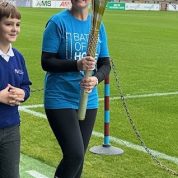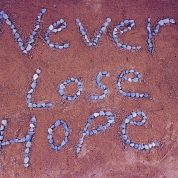Running voted most beneficial exercise to manage mental health, as 80% of those who struggle say exercise helps manage issues
Ahead of World Mental Health Day 2025 (10th October), new research by natural active foot care specialist, The Feets, reveals that more than 80% of people who experience mental health challenges find physical exercise to be an effective way of managing their symptoms – with running being voted the most effective activity of all. The survey of the UK public*, commissioned by The Feets, found that over half of us (54%) have experienced mental health challenges such as stress, depression,...
Read MoreBaton of Hope – Lasting HOPE brought to North Lincolnshire
Today, the Baton of Hope arrived in North Lincolnshire—and it left a profound mark. I had the honour of carrying it as a Baton-bearer, and I did so for three deeply personal reasons. 🔹 First, to raise awareness of the devastatingly high rates of suicide within the Autistic community. Research shows that 66% of Autistic people have considered suicide, and we are disproportionately represented across the entire suicide continuum—from ideation and attempts to lives tragically lost. 🔹 Second, I...
Read MoreWORLD SUICIDE PREVENTION DAY: The Importance of Family, Friends & Hope for those Experiencing Suicidal Thoughts
A new YouGov survey commissioned by suicide prevention charity Campaign Against Living Miserably (CALM) has highlighted the reasons people experiencing suicidal thoughts made the decision to stay in one of the first studies into survival of its kind2. The research coincides with World Suicide Prevention Day, as the charity is working to raise awareness of the importance of stories of hope and survival in suicide prevention. Of the people surveyed, over 30% had previously experienced suicidal...
Read MoreThrive Neurodiversity in the Workplace Training
Thrive offers a robust and thoughtful approach to supporting neurodiversity in the workplace, aiming to shift the narrative from mere awareness to genuine inclusion and empowerment. What Thrive Provides Thrive’s Neurodiversity In The Workplace training is designed to help organisations: Understand neurodiversity: It challenges the outdated notion of a “normal” brain and embraces the full spectrum of cognitive differences—including autism, ADHD, dyslexia, dyspraxia, dyscalculia, and Tourette...
Read MoreDyslexia: The strengths too often over-looked
While dyslexia is often framed around challenges with reading and writing, it also comes with a fascinating array of cognitive strengths that deserve just as much attention. Here’s a breakdown of some of the most commonly recognised strengths associated with dyslexia: Cognitive and Creative Strengths Big-picture thinking: Dyslexic individuals often excel at seeing overarching patterns and connections that others might miss. This can be a huge asset in strategic planning, storytelling,...
Read More







